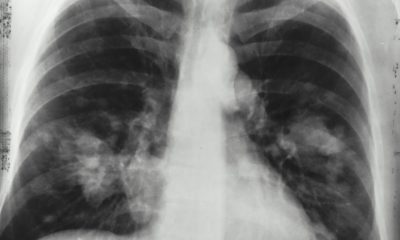By Jim Leffman via SWNS
The sex hormone estrogen could be behind why more women than men suffer from an irregular heartbeat, or arrhythmia.
Although women generally have better protection against cardiovascular diseases than men, this is not the case when it comes to hereditary diseases causing an abnormal heart rhythm.
Researchers from Linkoping University in Sweden looked at one particular disease called Long QT syndrome LQTS), in which the heart takes longer than normal to finish every heartbeat.
This syndrome is most often due to a congenital hereditary change, or mutation, affecting one of the heart’s ion channels but is relatively rare, affecting around one in 2,500 people.
Ion channels are small pores that go through the cell’s membranes and regulate the flow of electrically charged ions in and out of the cell.
Some ion channels act as an accelerator and others as a brake. Together, they regulate every one of the 2.5 billion heartbeats most of us have during our lives.
Author Sara Liin, associate professor in the Department of Biomedical and Clinical Sciences said: “We’re trying to understand which substances in the body impact the function of the ion channels.
"If we could figure out how this regulation works, maybe we can understand why some individuals are more protected and others are hit harder.”
Using frogs' eggs, the team inserted the human variant of the ion channel into the eggs which do not have this channel.
They added the most active form of the sex hormone estrogen, called estradiol, and measured the ion channel function.
It turned out that ion channel function was hampered by estrogen, which indicates that estrogen may increase the risk of certain types of arrhythmia.
Other sex hormones had no effect.
The research, published in the journal Science Advances, went on to discover exactly which parts of the channel were affected by estrogen.
They then further examined ion channel mutations found in families with hereditary arrhythmia syndromes.
Some mutations led to high estrogen sensitivity, while others led to the ion channel completely losing estrogen sensitivity.
Liin said: "We show that some hereditary mutations that reduce ion channel function seem to contribute to high estrogen sensitivity, so there could be two risk factors that interact especially in women carriers of these mutations.
"We believe that our study gives good reason to look closer at this in patients."
The researchers point out that it is important to remember the many positive effects of estrogen, but that in women with a hereditary increased risk of LQTS, estrogen could possibly be a risk factor.

 Parenting7 days ago
Parenting7 days ago
 Lifestyle6 days ago
Lifestyle6 days ago
 Good News2 days ago
Good News2 days ago
 Broadcast1 week ago
Broadcast1 week ago
 Health3 days ago
Health3 days ago
 Broadcast1 week ago
Broadcast1 week ago
 Money1 week ago
Money1 week ago
 Wildlife2 days ago
Wildlife2 days ago






















